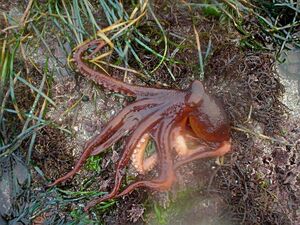
The Washington environment is just wet enough for this amphibian who spends most of its time in trees and lays eggs in nearby rivers.
Hopefully you realize this is a hoax. This website is often used by classrooms to help teach children how to decide if a website is trustworthy or not. Some articles I read left me appalled to discover that preteens/ early adolescents actually thought they were true.
Now, before you go blaming public education, let me do a very quick summary of cognitive development.
Piaget Cognitive Stages of Development: .
- Sensorimotor- Birth through ages 18-24 months
- Preoperational- Toddlerhood (18-24 months) through early childhood (age 7)
- Concrete operational- Ages 7 to 12
- Formal operational-Adolescence through adulthood
I taught fifth graders, who are considered preteens, and are also in the concrete operational stage.
Basically, these kids do not think in an abstract manner. We should not be that surprised that they do not have the ability to decide if something is a hoax or not.
Now, let's talk about fake news, shall we? I see people of all generations sharing fake news on Facebook. Generally, it is fake news that supports whatever political party/team they are on. Now, I know not everyone is a natural cynic like me, so here is a list of criteria I would teach my students to use.
- Purpose
What is the purpose of the site or page? - commercial
- informative or educational
- entertainment
- personal
- a hoax
- Author's Intent
- What is the top-level domain of the site?
- Who created the site and what authority do they have on the subject?
- What contact information is given for the author or sponsors?
- Bias
- Does the content give only one side of an issue? If so, do they hide their bias?
- Does their bias impact the usefulness of the information?
- Content
- Is the site accurate, complete, well-written, and relevant?
- Is the site up-to-date?
- Do most of the links on the page lead to relevant information?
- Are there mistakes in spelling or word usage?
- Design
- Is the information presented in a clear and organized fashion?
- Do any graphics, video or audio add to the content or distract?
- Do ads interfere with the content?
And here is a list of hoax websites to fool someone with.
Genochoice
Buy an ancestor
Dog Island
Mankato, MN
Don't plagiarize me, bro!
http://www.easybib.com/guides/7-fake-websites-to-test-students/
http://www.webmd.com/children/piaget-stages-of-development#2
http://www.pensacolachs.org/webpages/capplications/index.cfm?subpage=417792
No comments:
Post a Comment